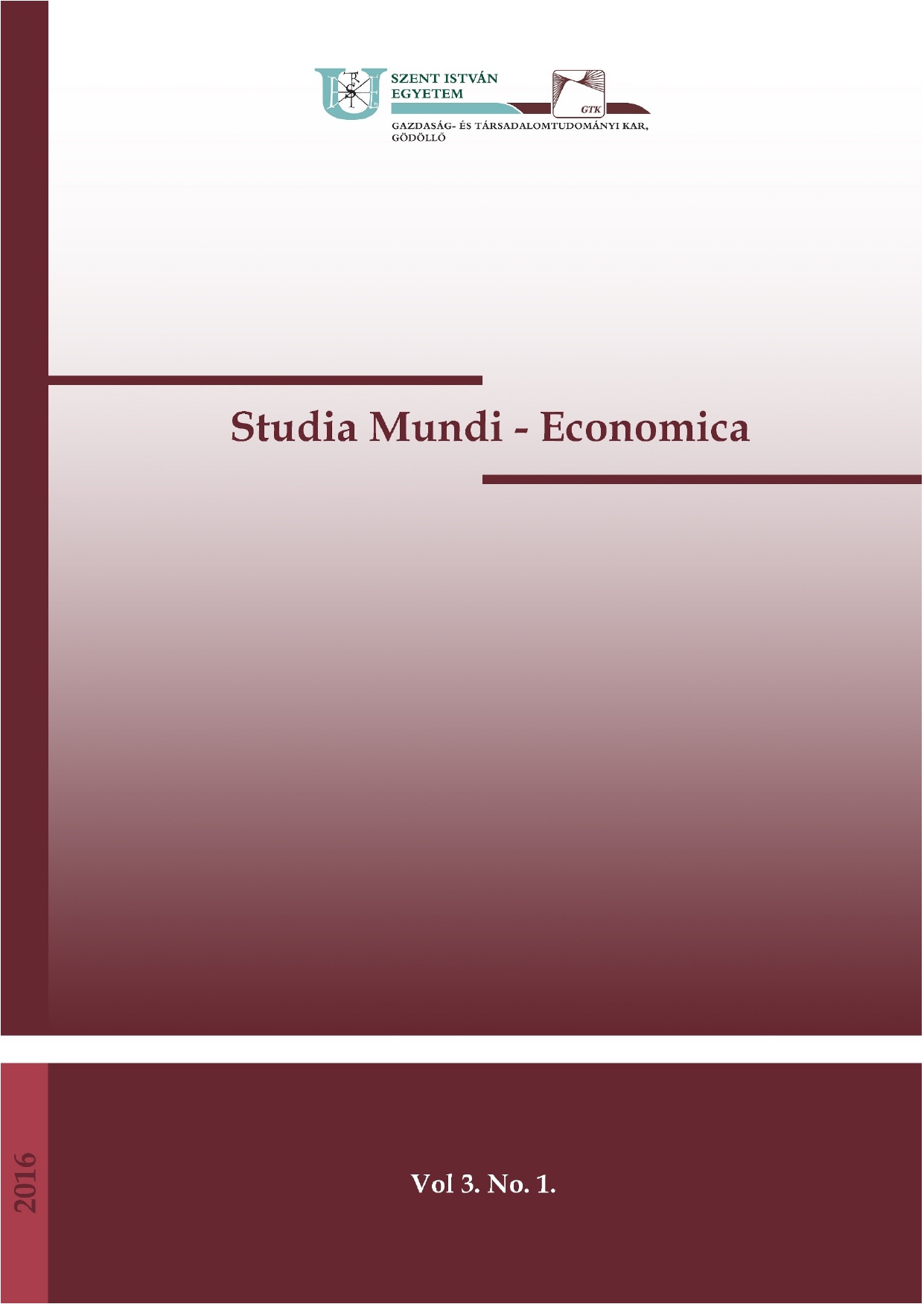Multiculturalism as a socio-cultural component of the sustainable development in Nigeria
DOI:
https://doi.org/10.18531/Studia.Mundi.2016.03.01.108-117Kulcsszavak:
Multiculturalism, socio-cultural, sustainable, development, NigeriaAbsztrakt
The concept of sustainable development has no longer been defined from a strictly environmental perspective for quite a few years now. The scope of the problem has been enlarged to include its social dimensions, leading notably to a renewed focus on the topic of national social and cultural diversity. Social component of sustainability is focused on human rights, social inclusion, civic engagements and aimed at preserving the stability of social and cultural systems, which includes the reducing of tensions and conflicts between people, maintaining a peaceful coexistence and tolerance between different nations and ethnicity. In order to achieve those sustainable development aims, our modern society should establish a more efficient decision-making system taking into account cultural diversity and encourage pluralism. This study therefore argues that multiculturalism is an indispensable tool for national integration, sustainable cultural development and consequently influence all spheres of the state policy making in Nigeria.
Hivatkozások
Adagba, O., Ugwu, S. & Eme, O. (2012). Activities of Boko Haram and Insecurity Question in Nigeria. Arabian Journal of Business and Management Review. 1(9), 77-99.
Ake, C. (1996) “The political question”, in: O. Oyediran (Ed.) Governance and Development in Nigeria: Essays in Honour Billy Dudley, Ibadan: Agbo Areo.
Akinyele, R.T. (2001) “Ethnic Militancy and National stability in Nigeria: A Case Study of the Oodua People’s Congress”, African Affairs, Vol.100: 623-640
Dempsey, et al (2009) ‘The Social Dimension of Sustainable Development: Defining Urban Social Sustainability’ Sustainable Development, pp. 289–300
Ekanola, A. (2006). National Integration and the Survival of Nigeria in the 21st Century. The Journal of Social, Political and Economic Studies. 31(3), 279-293.
Friedrich Heckmann(1993). Multiculturalism Defined Seven Ways. The Social Contract, p 245.
Georgious, P. (1984). “Speech on Multiculturalism” in: Proceedings of the First National Congress, Sixth National Conference and Annual General Meeting of the Federation of Ethnic Communities Councils of Australia Inc; 3-9 December.
Government of South Australia (2015). Definition of Multiculturalism and Culture. Available at:
Gwunireama, I. U. (2008). “Metaphysical of Minority Status as Mediating Structure” in: Democracy: Ibom
Ifeanacho, M. & Nwagwu, J. (2009). Democratization and National Integration in Nigeria. Research Journal of International Studies. Issue 9, January, 12-20.
Joseph, R. (2006), “Mis-governance and the African predicament: Can the code be broken”, Faculty Distinguished Personality Lecture Series 1, Delivered 30November, Faculty of the Social Sciences, University of Ibadan.
Mustapha, A. R. (2002) Ethnicity and democratization in Nigeria, in D. Eyoh, B. Berman &W. Kymlicka (eds) Ethnicity and Democracy in Africa , Oxford: James Currey.
Mustapha, A. R. (2004) “Nigeria: Ethnic Structure, Governance and Public Sector Reform”, paper presented at UNRISD Conference on Ethnic Structure, Governance and Public Sector Reform, March 2004.
Nafziger, E. W. (1983) The Economics of Political Instability: The Nigerian-Biafran War, Boulder CO: Westview Press
Ogbu, S. (2001). Politics and the Struggle for Democracy in Nigeria: An Appraisal. University of Jos Journal of Political Science. 2(3), 14-25.
Okwenna, I. (2011). Zoning, Rotation and the Power Struggle in Nigeria. Retrieved on the 7th of September,2012, from http://elombah.com/index.php?option=com_content&view=article&id=4836:zoningrotation-and-the-power-struggle-in-nigeria&catid=25:politics&Itemid=92
Otite, O. and I. O. Albert (1999) Community Conflicts in Nigeria: management, Resolution and Transformation, Ibadan: Spectrum Books 18. Suberu, T.R. (1998), “States creation and the political economy of Nigerian federalism”, in Kunle Amuwo et al (eds.), Federalism and political restructuring in Nigeria, Ibadan: Spectrum Books Limited.
Letöltések
Megjelent
Folyóirat szám
Rovat
License
Copyright (c) 2016 Kehinde Olagunju, Davit Alaverdyan

This work is licensed under a Creative Commons Attribution-NonCommercial-NoDerivatives 4.0 International License.
A folyóirat Open Access (Gold). Cikkeire a Creative Commons 4.0 standard licenc alábbi típusa vonatkozik: CC-BY-NC-ND-4.0. Ennek értelmében a mű szabadon másolható, terjeszthető, bemutatható és előadható, azonban nem használható fel kereskedelmi célokra (NC), továbbá nem módosítható és nem készíthető belőle átdolgozás, származékos mű (ND). A licenc alapján a szerző vagy a jogosult által meghatározott módon fel kell tüntetni a szerző nevét és a szerzői mű címét (BY).






